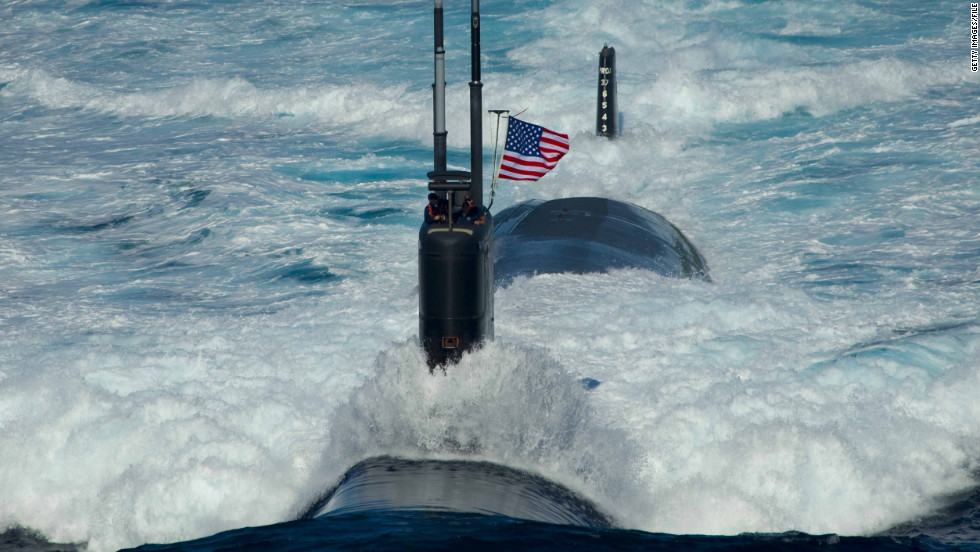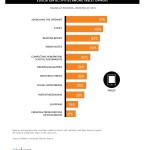
May 16, 2017
Visit Me at My Blog Hop for Twenty-four Days
 This week, my wonderful efriends here in the blogosphere are helping me get the word out about my second novel, Twenty-four Days. I’ll be visiting their blogs to chat about the book, the process, and anything else on their minds. Some of the questions we’ll cover:
This week, my wonderful efriends here in the blogosphere are helping me get the word out about my second novel, Twenty-four Days. I’ll be visiting their blogs to chat about the book, the process, and anything else on their minds. Some of the questions we’ll cover:
- Can science make a warship invisible?
- Exactly how cool is Otto, the AI?
- What is an ‘AI’?
- What pick-up line does the story’s geek, Eitan Sun, use to attract his first wife?
- Are there drones in this book?
- Is the submarine’s invisibility shield like the cloak in Harry Potter?
- Do you have to read the prequel, To Hunt a Sub, to understand this book?
- How does Otto find submarines anywhere in the world?
- Is this a romantic thriller?
- Is the tech included in the book really possible?
- When is Book 3 in the Rowe-Delamagente series out?
Here’s the schedule of who’ll I’ll visit. I haven’t included the question–you’ll just have to drop in to see the answer:
Please join me whenever you can. I’d love to see you.
Synopsis of Twenty-four Days:
A former SEAL, a brilliant scientist, a love-besotted nerd, and a quirky AI have twenty-four days to stop a terrorist attack. The problems: They don’t know what it is, where it is, or who’s involved.
What sets this story apart from other thrillers is the edgy science used to build the drama, the creative thinking that unravels the deadly plot, and the sentient artificial intelligence who thinks he’s human:
World-renowned paleoanthropologist, Dr. Zeke Rowe is surprised when a friend from his SEAL past shows up in his Columbia lab and asks for help: Two submarines have been hijacked and Rowe might be the only man who can find them.
At first he refuses, fearing a return to his former life will end a sputtering romance with fellow scientist and love of his life, Kali Delamagente, but when one of his closest friends is killed by the hijackers, he changes his mind. He asks Delamagente for the use of her one-of-a-kind AI Otto who possesses the unique skill of being able to follow anything with a digital trail.
In a matter of hours, Otto finds one of the subs and it is neutralized.
But the second, Otto can’t locate.
Piece by piece, Rowe uncovers a bizarre nexus between Salah Al-Zahrawi–the world’s most dangerous terrorist and a man Rowe thought he had killed a year ago, a North Korean communications satellite America believes is a nuclear-tipped weapon, an ideologue that cares only about revenge, and the USS Bunker Hill (a Ticonderoga-class guided missile cruiser) tasked with supervising the satellite launch.
And a deadline that expires in twenty-four days.
As America teeters on the brink of destruction, Zeke finally realizes that Al-Zahrawi’s goal isn’t nuclear war, but payback against the country that cost him so much.
Kirkus Reviews says:
A blistering pace is set from the beginning: dates open each new chapter/section, generating a countdown that intensifies the title’s time limit. Murray skillfully bounces from scene to scene, handling numerous characters, from hijackers to MI6 special agent Haster. … A steady tempo and indelible menace form a stirring nautical tale
What customers are saying about this series:
J Murray’s long anticipated thriller, To Hunt a Sub, is a satisfying read from a fresh voice in the genre, and well worth the wait. The time devoted to research paid off, providing a much-appreciated authenticity to the sciency aspects of the plot. The author also departs from the formulaic pacing and heroics of contemporary commercialized thrillers. Instead, the moderately paced narrative is a seduction, rather than a sledgehammer. The author takes time rendering relatable characters with imaginatively cool names like Zeke Rowe, and Kalian Delamagente. The scenes are vividly depicted, and the plot not only contains exquisitely treacherous twists and turns, but incorporates the fascinating study of early hominids, and one ancestral female in particular who becomes an essential character. The narrative might have benefited from language with a crisper, sharper edge, but that is purely my personal taste and preference and takes nothing away from the overall satisfaction of this novel.
A nuclear sub goes missing and Zeke Rowe is called in to help with the investigation. He joins forces with Kali Delamagente, the developer of an AI named Otto whose unique ability is compiling clues and finding things – like ancient people, kidnappers, and modern subs. Rowe’s not the only one whose interested in the subs or Otto’s capabilities. Bent on destroying America, a terrorist is making Kali’s life miserable, breaking into her lab, hacking her computer, and making hostages out of those she loves. As the terrorist ring closes in, time is running out and the stakes are rising.
One thing I enjoyed about this read is the technical reality Murray created for both the scientific and military aspects of the book. I completely believed the naval and investigatory hierarchy and protocols, as well as the operation inside the sub. I was fascinated by her explanation of Otto’s capabilities, the security efforts Kali employs to protect her data, and how she used Otto’s data to help Rowe.
If that all sounds like too much science, the characters are also well-rounded human beings with colorful histories and rich emotional palettes. There’s a little romantic attraction thrown in for fun though it isn’t a main focus of the story. The plot is high energy and complex with twists that require the reader to pay attention. To Hunt a Sub is an entertaining novel for anyone who enjoys military thrillers.
The research and technical details she included in this book had me in complete awe. A cybervirus is crippling submarines–and as subs sunk to the bottom of the ocean, I found myself having a hard time breathing. It’s up to Zeke and Kali to save the entire country using their brains. If you love thrillers, this is definitely one you can’t miss!
Book information:
Author bio:
Sample chapter:
Monday, August 7th
HMNB Devonport England
Until last month, Eyad Obeid considered himself a devout Muslim. He prayed five times a day, proclaimed God’s glory in every conversation, and performed the required ablutions when confronted with uncleanliness. When his brother was executed by Israeli gunman five years ago, Obeid swore retribution. No nobler purpose could he imagine for his worthless life than dying for Allah.
But instead of a suicide vest and the promise of seventy-two virgins, the village imam enrolled him in college to learn nuclear physics, thermodynamics, chemistry, and math so complex its sole application was theoretical. Much to Obeid’s surprise, he thrived on the cerebral smorgasbord. In fact, with little effort, he attained all the skills required by the Imam.
By the time he earned his Ph.D. in Nuclear Physics, he had learned two lessons. First, he was much smarter than most people around him, and second, the western world was not what he had been told.
Now, just weeks after graduation, Eyad Obeid approached the dingy Devonport pub on the frigid southern shore of England and wondered how to explain to the man responsible for giving Eyad Obeid this amazing future that he would fulfill his obligation, but then, wanted out.
He squared his shoulders and entered the pub.
His stomach lurched. Rather than his mentor Salah Mahmud al-Zahrawi, he found the Kenyan and his three henchmen. He had first met these thugs in San Diego California where he learned to run a nuclear submarine under the friendly tutelage of British submariners. When Obeid finished his studies, the Kenyan slaughtered the Brits. No warning. No discussion, just slash, slice and everyone died.
As did Obeid’s belief in the purity of Allah.
The nuclear physicist jammed his hands into his pockets, hunched his shoulders, and approached the table. The Kenyan had never introduced himself and Eyad Obeid lacked the courage to ask.
“I was expecting Salah al-Zahrawi,” Obeid offered as he slipped into the booth.
The Kenyan stared past Obeid, eyes as desolate as the Iranian desert, thick sloping shoulders still, ebony skin glistening under the fluorescent lights. Danger radiated from him like the hum of a power plant. He had three new fight scars since their last encounter, like angry welts but otherwise, he looked rested, clearly losing no sleep over the slaughter of innocents.
“You have one more job before you are released.” In a quiet, toneless voice, the man without a soul explained the new plan, finishing with, “If you fail, you die.”
Obeid was stunned. His gut said Run! He risked his future—his life—staying a moment longer with this crazed zealot, but Obeid did little more than croak a strangled, “If I succeed, I will also die!” His University friends called it a Sophie’s Choice.
The Kenyan shrugged. “But less painfully.”
Obeid twitched as heat washed his face. As he sought an appropriate response, the waitress arrived with tea. She poured a cup for each of them, chattering to no one in particular about how she had forgotten her blarmy slicker because her boyfriend kept her up the whole bloody night, di’n he, and she was frightfully knackered. No one responded.
“Shall I tell you the specials on offer?”
The Kenyan slowly ratcheted his head toward her. “Go.”
The waitress backed away, almost knocking over another server and his steaming tray of eggs, bacon, black pudding, and baked beans. “Well, aren’t we in a bloody mood,” and she left.
The Kenyan did not seem to notice, his flat dead eyes back on Obeid. The physicist squirmed. He was but one man. His only hope was to quietly warn the authorities. He folded his hands into his lap to hide their shaking.
“Insha Allah, I will help. What do you require?”
“Do you remember the training you received from the Parishers?”
The British submariners you butchered? Obeid nodded.
“You must ensure the sailors perform their duties after we hijack the sub.”
With no further explanation, the Kenyan tossed a fistful of notes onto the table and left. As Obeid hurried after him, he surreptitiously thumbed a message into his phone and pushed send.
There was no signal.
The Kenyan parked in the crew lot outside Her Majesty’s Devonport Plymouth Naval Base. Obeid changed into a uniform and emerged from the car carrying a loaded gun in a prayer rug. Maa shaa Allah.
The storm broke and quickly turned the parking lot slick and shiny. Obeid shivered despite the heavy pea coat with the warm fur-lined collar. How did the British stand the weather? When this ended, he would never again leave the sparkling sun and cloudless skies of his beloved Iran.
“Eyad!” It was Tariq Khosrov, with two other friends from Obeid’s graduate program, all with PhDs in nuclear physics. Tariq was one of the smartest boys Obeid had ever met and the most naïve. “Are we going to steal a nuclear submarine?”
Obeid hissed, “Quiet!” and the Kenyan nudged him toward the base’s thick metal gates. They had been designed to stop an AK-47 or a firebomb, even an RPG, but not the weapon Salah al-Zahrawi would use. Faithful Muslims who worked for naval personnel had replaced pictures of the dead San Diego Parishers with Obeid and the rest of the hijackers. By the time the Royal Navy realized something was wrong, HMS Triumph would be gone and missing.
“Next!”
The man in front of Obeid passed his ID to the bored security. He checked the man’s face, his computer screen, and waved him through.
It was Obeid’s turn. “ID, please.”
Obeid’s chest tightened as the stern-looking sentry, blonde hair trimmed close to his scalp, collar turned up against the wind, fingers like thick sausages on powerful hands, turned a flint-eyed glare to Obeid. The nuclear physicist froze and the guard’s boredom became suspicion. He read the name stitched on the right breast of Obeid’s uniform. “Haim is it?”
He looked Obeid up and down, as though to determine if the name matched the slight figure in front of him with wire-rimmed glasses and the thatch of black hair dripping rain down his forehead. True, he couldn’t tell Obeid’s stomach lacked the six-pack of muscles the real Haim had been so proud of, but he could see Obeid’s slender hands and they were those of a scientist, not a sailor. Surely, the guard would say something.
Obeid fumbled, almost dropping the ID before shoving it forward.
“Anything to declare?” The guard’s gaze flicked to the prayer rug.
Sweat broke out under Obeid’s arms. Should he tell the guard there was an AK-47 in his prayer rug or would he shoot before listening to Obeid’s explanation? No, better to deal with the problem onboard. Besides, the Kenyans claimed they were simply leveraging demands against Britain backed by the threat posed by the sub’s weapons. They would never use them.
He bit his lip hard, tasting blood, and forced anger into his voice. “You suspect me because I am Muslim? Do you want to examine my prayer rug?” His voice dripped with righteous indignation as he had practiced and he extended the tightly-bound bundle, taking care to keep the ends turned away from the soldier. “Maybe I am carrying an A… K.” He purposely stumbled over the name.
The sentry flushed and stepped back as though burned.
“Now I didn’t mean that mate, did I? O’ course you’re fine,” and waved Obeid through.
Across the yard, limned against the grey sky, towered the domed shape of the HMS Triumph, its deck slick with rain, sail glistening in the early morning light. The warheads it carried could reach the vast majority of the planet but the bustling sailors, some in oil-stained uniforms, others nattily dressed in white with jaunty officer caps, greeted each other, oblivious to the danger approaching them in the uniform of shipmates.
What had he done?
“Keep going,” the scar-faced Kenyan hissed between clenched teeth.
Obeid balled his fists to stop their shaking and forced his steps to be slow and measured as if in no rush to start what would be a three-month deployment.
When the group reached the Triumph, they were greeted by a cherub-faced seaman. “You the Parisher blokes?” He stuck his hand out. “Name’s McEwen. We’re the Second crew. First came down with food poisoning.” He chuckled, eyes crinkling with merriment, brows like gray steel wool. “Brill, you think? Who wants to play hide and seek with a Diesel?”
McEwen poked the Kenyan in jovial familiarity while Obeid combed through his training for what a ‘diesel’ might be.
“Enough yakking. Get sorted, blokes. We leave in an hour.”
Jacqui Murray is the author of the popular Building a Midshipman, the story of her daughter’s journey from high school to United States Naval Academy, and the thrillers, To Hunt a Sub and Twenty-four Days. She is also the author/editor of over a hundred books on integrating tech into education, adjunct professor of technology in education, webmaster for four blogs, an Amazon Vine Voice book reviewer, a columnist for TeachHUB, monthly contributor to Today’s Author and a freelance journalist on tech ed topics. You can find her books at her publisher’s website, Structured Learning.







